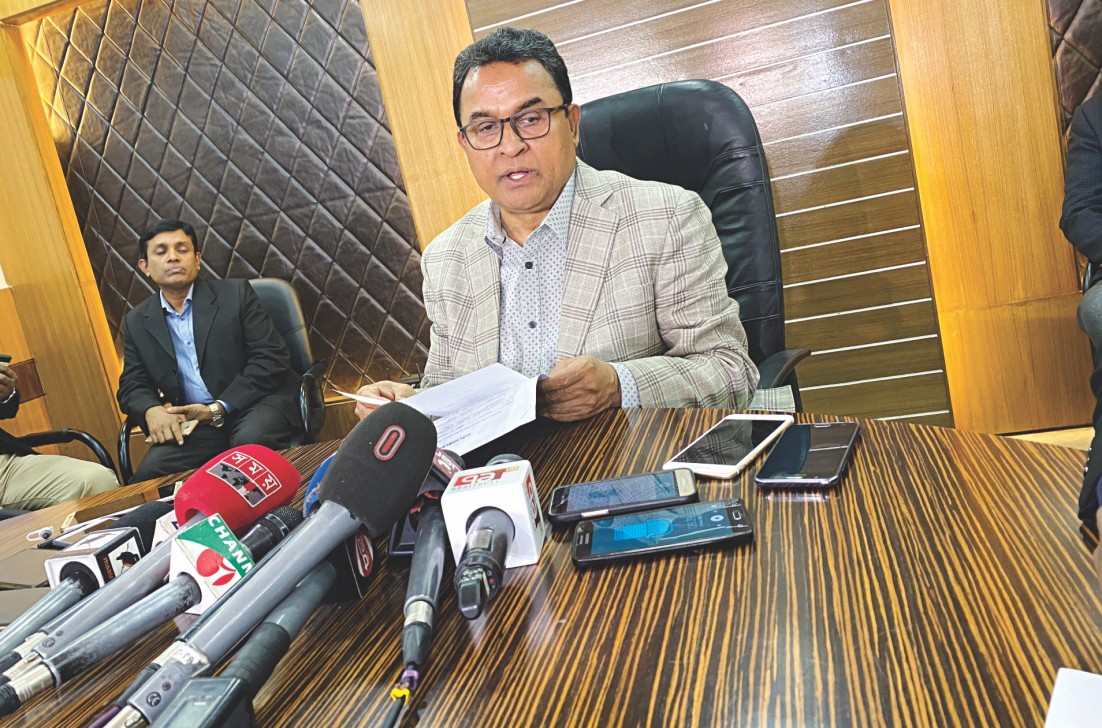Donors commit $4.25b in this year’s BDF: Kamal

Three foreign donors made commitments of $4.25 billion of new funds in Bangladesh Development Forum this year, in what was a first for the ten-year-old biennial gathering.
They came up with the funds in honour of the birth centenary of Father of the Nation Bangabandhu Sheikh Mujibur Rahman, Finance Minister AHM Mustafa Kamal told a press briefing in his office yesterday.
“This year’s BDF has been very fruitful,” he said.
The two-day event, which was organised by the Economic Relations Division at the capital’s Bangabandhu International Conference Centre, wrapped up on January 30.
At a meeting, Javier Manzanares, deputy executive director of Green Climate Fund (GCF), expressed a willingness to extend $1.2 billion to Bangladesh for a period of four years, Kamal said.
Manzanares reiterated the interest in a separate meeting with Prime Minister Sheikh Hasina.
Bangladesh has never received any fund from GCF, which was mainly formed to provide financial assistance to countries badly hit by climate change.
Set up in 2010 by the United Nations Framework Convention on Climate Change, GCF is the world’s largest dedicated fund helping developing countries reduce their greenhouse gas emissions and enhance their ability to respond to climate change.
GCF launched its initial resource mobilisation in 2014, and rapidly gathered pledges amounting to $10.3 billion mainly from developed countries.
Conditions that would be impossible for Bangladesh to implement will not be tagged with the GCF funds, Kamal said, adding that a list of projects will now be sent to the GCF.
Another team of World Bank officials led by Hartwig Schafer, its vice-president, met with the minister and promised to provide $350 million to help the local communities of Ukhia and Teknaf and the Rohingyas.
Of the sum, about $100 million will be used as additional financing for the social safety nets for the poorest, especially in the local communities, Kamal said.
About $150 million will be given for health and gender support project and the rest will be used for emergency multi-sector Rohingya crisis response project.
The Washington-based multilateral lender is already running three projects worth $240 million for the Rohingyas.
Asked whether it will be correct to receive funds for the Rohingyas when the government is trying to send them back to Myanmar, the minister said: “Their repatriation will not take place overnight.”
The government is making all-out effort to send the Rohingyas back to their motherland.
But the government will need a lot of money to take care of the displaced population as long as they are living inside Bangladesh, Kamal said.
Meanwhile, Japan International Cooperation Agency (JICA) also committed to give Bangladesh an additional $2.7 billion as loan along with its regular assistance.
Junichi Yamada, senior vice-president of JICA, expressed the interest in a meeting with Kamal.
The Japanese governmental agency that coordinates official development assistance has already identified four of the six projects where it wants the funds to be used, the minister said.
JICA has been working in nine programmes in Bangladesh since its independence.
The agency works to accelerate sustainable economic growth with equity and bringing people out of poverty as it become a middle-income country.
The development partners have made a lot of recommendations, which the government will add in its next five-year plan, Kamal added.
